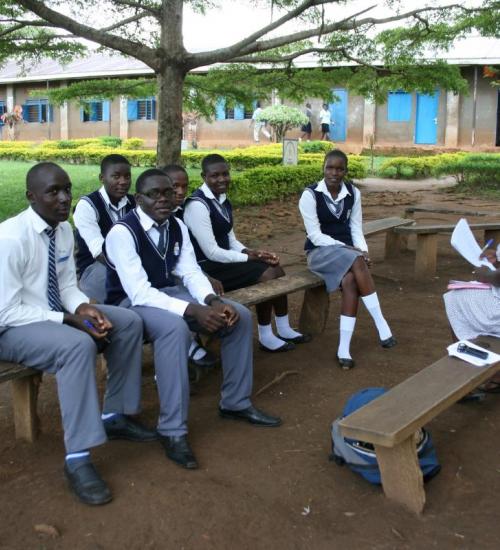
“Education and Dignity”—Uganda
Families have flocked to private schools in Uganda but they vary greatly in the professionalization of their staff and the education they provide. In this pilot project, the Ford Program is evaluating a Ugandan educational institute’s ambitious initiative to increase the quality of education in a group of Catholic secondary schools by promoting consciousness of human dignity school wide.
From 2015 to 2017, the Luigi Giussani Institute of Higher Education (LGIHE) partnered with teachers and school leaders in seven rural Catholic schools in Uganda to provide professional development training. Constrained by a demanding national syllabus, a scarcity of material resources, and a need to supplement their low salaries, educators were challenged by LGIHE to reconsider their reason for teaching, allowing their pedagogy and practice to flow from a student-centered approach. School leaders were encouraged to reflect on their school's culture, working towards a holistic education committed to dignity and relationality.
Ford Program researchers collaborated in a mixed methods evaluation of the LGIHE intervention, engaging with students, parents, teachers, and school leaders in seven schools. The study affirms the improvement of trust between teachers and head teachers and reinforcement of the student-centered approach, and it suggests that future modules consider including parents and supporting teachers. Click on the report below for further insights about the effectiveness of the trainings and recommendations for evaluating the quality of education in the Ugandan context.
Partners: Congregation of Holy Cross, Luigi Giussani Institute for Higher Education (LGIHE), Association of Volunteers in International Service (AVSI), and Notre Dame's Institute for Educational Initiatives
Researchers: Ilaria Schnyder von Wartensee, Research Assistant Professor, and Danice Brown, Monitoring and Evaluation Specialist, Ford Program
Period: 2015–17





